How Does Smoking Affect Gum Health?
Smoking is one of the most common habits worldwide, but its detrimental effects on health extend far beyond the lungs. While many are aware of its connection to cancer and serious diseases, fewer realize that smoking wreaks havoc on oral health, particularly the gums. Healthy gums are essential for a strong foundation for teeth, and when they are compromised, it can lead to severe dental issues, including tooth loss.
Gum health issues caused by smoking are not limited to cosmetic concerns. Smoking triggers problems such as gum disease, increased plaque buildup, and reduced healing abilities in oral tissues. With over 40 million adults in the U.S. currently smoking, understanding the relationship between smoking and gum health is essential in raising awareness and promoting better dental hygiene. This article explores the science behind how smoking impacts gums, highlights its long-term consequences, and suggests actionable steps to improve gum health for smokers.
At Dentistry Toothtruth, we aim to shed light on key dental health issues and provide you with practical, evidence-based solutions to maintain healthy gums and teeth. Let's dive into the effects of smoking on gum health, backed by facts and expert advice.
Smoking Contributes to Gum Disease
Gum disease, also known as periodontal disease, is a common yet preventable condition caused by bacterial infections in the gum tissue. Smokers are at a significantly higher risk of developing this condition. The chemicals in tobacco, including nicotine and tar, weaken the body's immune response, making it harder to fight off infections. Research has shown that smokers are up to twice as likely to develop periodontal disease compared to non-smokers.
The toxins present in cigarette smoke directly harm the tissues in the gums. Smoking causes reduced blood flow to the gums, depriving them of essential nutrients and oxygen. This weakens the tissue further and makes it more susceptible to bacterial growth. Gum disease often begins with inflammation (gingivitis) and, if left untreated, can progress to periodontitis, a severe form of gum infection that damages the bone and tissue supporting the teeth.
Smoking Masks Early Symptoms of Gum Problems
One of the most concerning aspects of smoking-related gum issues is that they often go unnoticed. Smoking reduces blood flow to the gums, which can prevent common symptoms like bleeding gums from occurring. Without these warning signs, smokers may not realize their gums are deteriorating until the damage is severe.
Additionally, smoking can suppress pain receptors, further masking the discomfort associated with gum problems. This delay in recognizing gum disease often leads to more severe complications down the line. Regular dental check-ups are critical for smokers to detect and address gum issues early, before they escalate into more serious conditions.
Smoking Increases Plaque and Tartar Build-Up
Smokers are more prone to excessive plaque and tartar build-up compared to non-smokers, primarily due to the impact of tobacco on saliva production. Saliva plays a crucial role in washing away food particles and bacteria from the teeth. Smoking reduces saliva flow, which allows plaque to build up more quickly.
Over time, this plaque hardens into tartar, which can only be removed by a dental professional. Tartar build-up exacerbates gum inflammation and creates an environment where bacteria can thrive, increasing the risk of gum disease. This is why smokers often find themselves requiring more frequent dental cleanings and interventions.
Impact of Smoking on Healing and Surgery Recovery
Smoking significantly slows down the body's natural healing process. This is particularly problematic for oral surgeries, such as gum grafts, extractions, or dental implant placements. Smokers are at a higher risk of post-surgical infections and complications due to reduced blood supply in the gums.
Studies have shown that healing times for smokers following oral surgery can be two to three times longer than for non-smokers. Smokers are also more likely to experience gum recession after treatments, which can lead to further dental issues, including sensitivity and tooth loss.
Long-Term Effects: Tooth Loss and Bone Loss
If smoking-related gum health issues are not addressed, they can lead to severe consequences. Long-term smoking is a major risk factor for tooth loss. As the gums recede and periodontitis progresses, the bone that anchors teeth begins to erode. Eventually, this leads to tooth loosening and loss.
Bone loss in the jaw not only affects oral function but also alters facial structure, leading to premature aging. Additionally, those who lose teeth due to smoking-related gum disease may face challenges with dental implants. Smoking reduces the success rate of implants due to impaired healing and tissue integration.
Quit Smoking to Protect Your Gums
While the effects of smoking on gum health are alarming, there is hope. Quitting smoking can significantly improve your oral health and reduce the risks associated with gum diseases. Within weeks of quitting, you may notice improved gum color and reduced inflammation. Over time, your body’s natural healing processes can restore much of the damage caused by smoking.
In addition to quitting smoking, maintaining proper oral hygiene is vital. This includes brushing and flossing daily, using anti-bacterial mouthwash, and scheduling regular dental cleanings. For smokers, visiting dentists more frequently can help monitor gum health and detect early signs of disease.
Conclusion: Take Action for Your Gum Health Today
Smoking has a profound and damaging impact on gum health, leading to issues such as gum disease, tooth loss, and impaired healing. The good news is that these effects can be mitigated through lifestyle changes, regular dental visits, and quitting smoking. Protecting your gums and oral health starts with making informed decisions today.
At Dentistry Toothtruth, we’re dedicated to helping you maintain a healthy, confident smile by providing expert advice and resources. If you’re a smoker, consider talking to your dentist about how to safeguard your gums and explore tools to help you quit smoking. Your gums—and your overall health—will thank you in the long run.

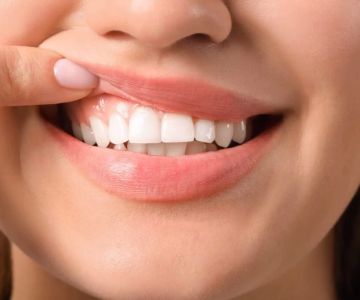
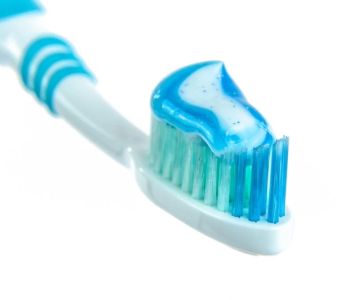
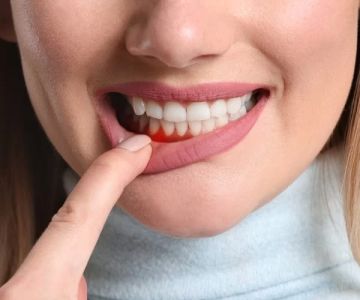
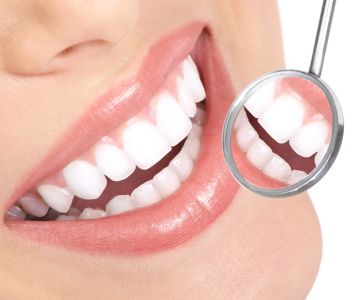

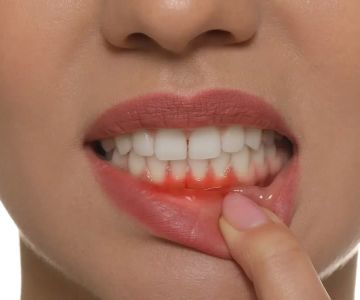
 Dr. Janelle Holden, DDS4.0 (5 review)
Dr. Janelle Holden, DDS4.0 (5 review) I Smile KCK4.0 (401 review)
I Smile KCK4.0 (401 review) Shore Smiles 4 Kids5.0 (21 review)
Shore Smiles 4 Kids5.0 (21 review) First Choice Dental- Madison Campus4.0 (184 review)
First Choice Dental- Madison Campus4.0 (184 review) Drs. Brian & Allen P. Shapiro5.0 (3 review)
Drs. Brian & Allen P. Shapiro5.0 (3 review) Brimhall Dentistry4.0 (284 review)
Brimhall Dentistry4.0 (284 review) The Importance of Oral Health Education During Pregnancy for a Healthy Pregnancy
The Importance of Oral Health Education During Pregnancy for a Healthy Pregnancy Best Tips for Brushing Your Teeth Properly for Healthy Gums: Essential Techniques for Oral Health
Best Tips for Brushing Your Teeth Properly for Healthy Gums: Essential Techniques for Oral Health Why Skipping Dental Checkups Can Lead to Bigger Oral Health Problems
Why Skipping Dental Checkups Can Lead to Bigger Oral Health Problems Advantages of Porcelain Dental Restorations
Advantages of Porcelain Dental Restorations How Can Diabetes Cause Tooth and Gum Problems? Preventing and Managing Oral Health Issues
How Can Diabetes Cause Tooth and Gum Problems? Preventing and Managing Oral Health Issues Healthy Habits for Promoting Good Oral Health and Hygiene: Tips for a Healthy Smile
Healthy Habits for Promoting Good Oral Health and Hygiene: Tips for a Healthy Smile